The world is watching: youth and artificial intelligence combat climate change
David Dao, a doctoral student in the DS3Lab at the Department of Computer Science, visited the 2021 United Nations Climate Change Conference and explains what computer science can do to help.
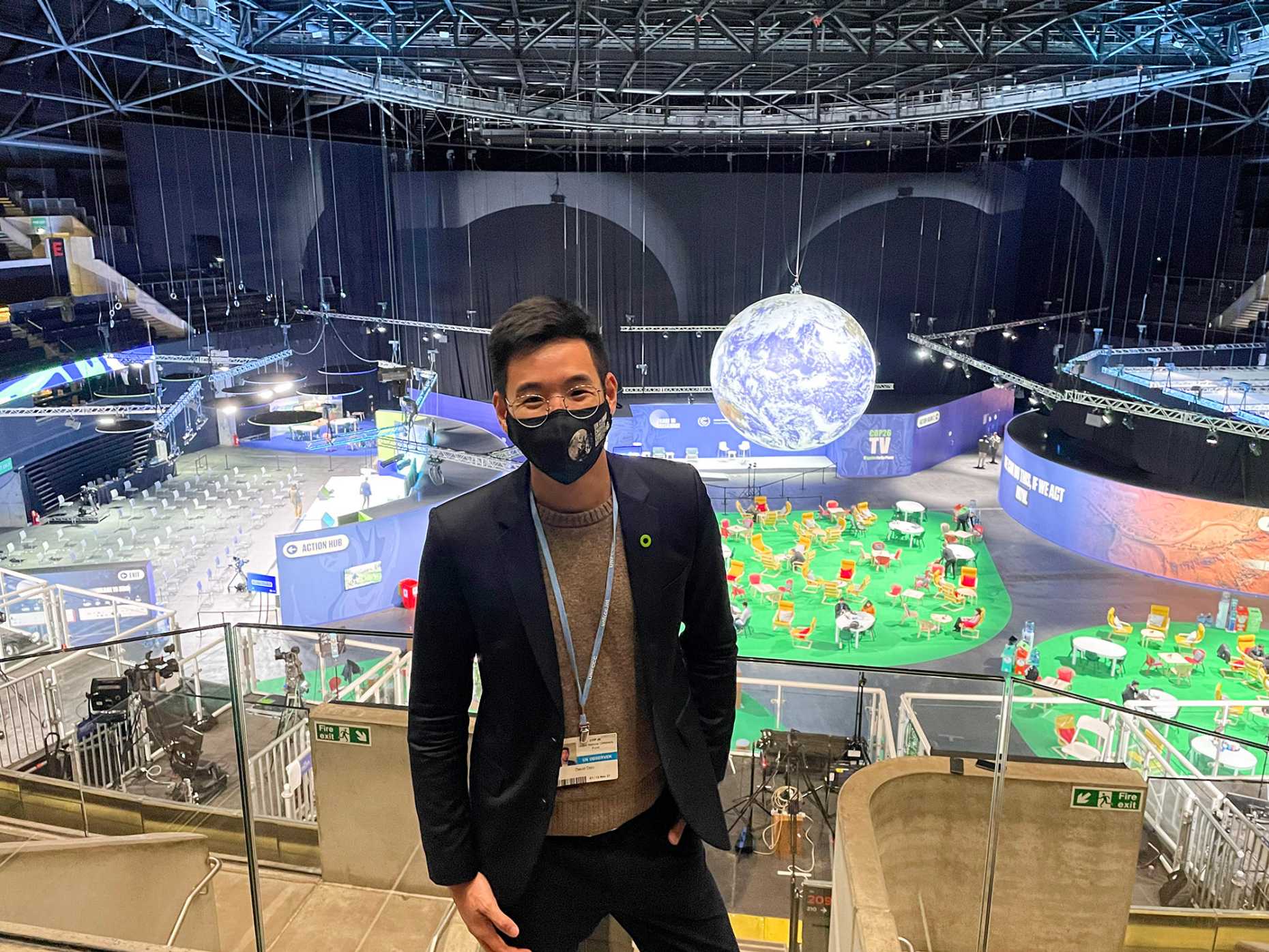
“No more blah blah blah! COP26, act now!” The closer you get to the Scottish Event Campus, the clearer you can see the protest signs, and the louder you can hear people chanting. Hundreds of protesters, young and old, gather daily in front of the security gates of the 2021 United Nations Climate Change Conference, known as COP26, to remind a long queue of delegates what is at stake here in Glasgow: the very future of our planet. “If not now, when? Time is running out!”
I wait in line holding my mandatory COVID test result for today. In the morning, the queue to enter COP sometimes gets so long that delegates have to wait for hours. Enough time to read all the protest signs and reflect on them. “Save our planet! The dinosaurs thought they had time too!” COP26’s goal is to limit global warming to 1.5 degrees. Anything above this, scientists agree, could lead to catastrophic consequences. “The future is watching. If you fail, we will never forgive you."
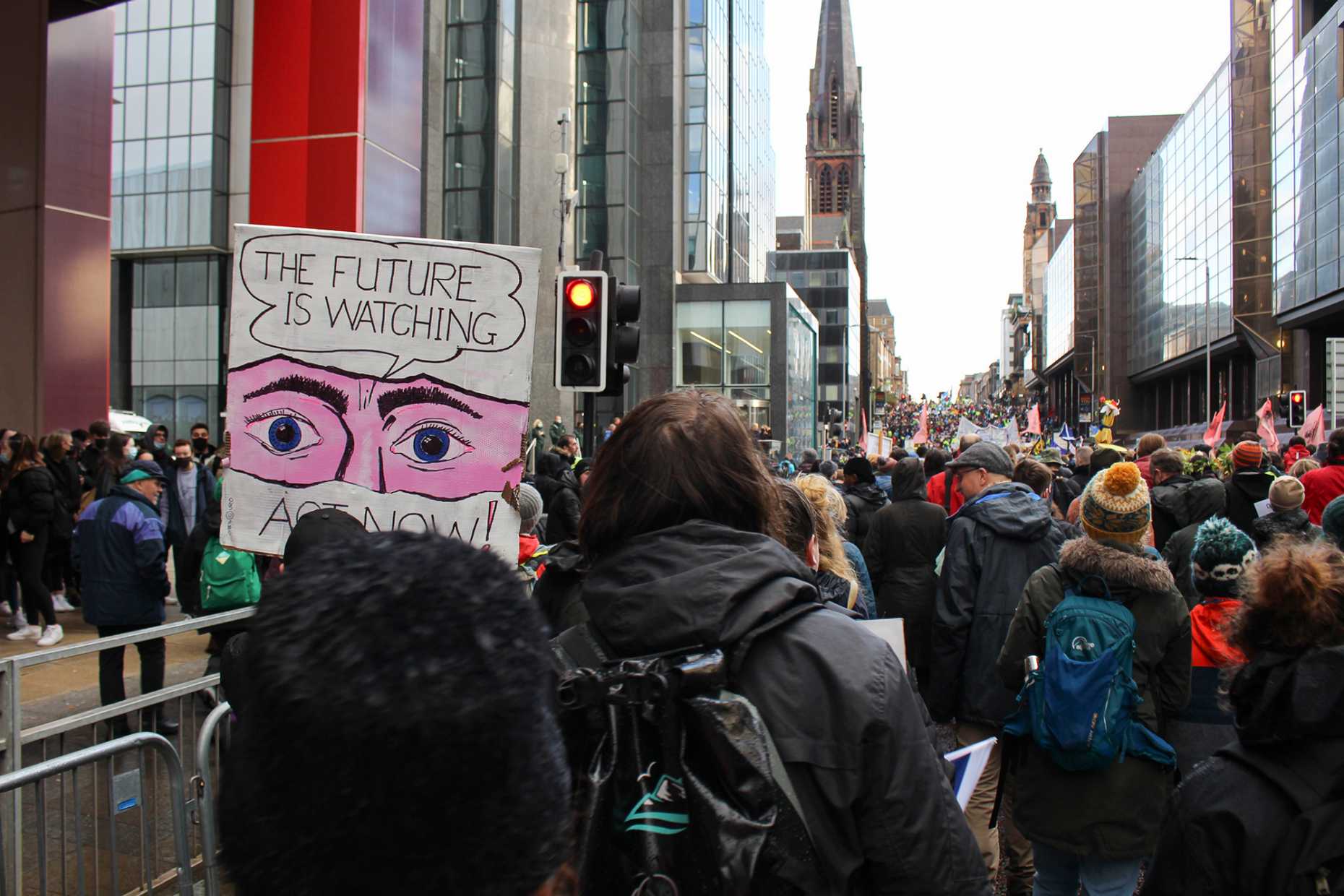
The world has been waiting for this Climate Change Conference for more than two years. 2020 was the hottest year on record, and global warming has already reached 1.2°C above pre-industrial levels. For many of us waiting in line, it was clear that this is our last decade to act. Weirdly, the moment you pass through security and enter COP26, the sounds of the protesters vanish. Instead, a conference atmosphere emerges that almost feels too normal. Delegates are running from one meeting to another. Countries have their own pavilions where they host events, provide snacks and give out souvenirs. There are restaurants, food courts, art exhibitions, and a large plenary hall where arguably the world’s most important negotiation will take place over two weeks.
Fortunately, you will never get too used to this feeling, because waiting in line the next morning will remind you of the weight of responsibility on your shoulders. The world is watching.
Climate change and computer science
I have had the privilege to attend the Blue Zone of COP since 2017, initially as an NGO observer and later as an UN observer. My 2017 participation was due to winning a United Nations hackathon; after that I was there through the children and youth constituency to the UNFCCC (YOUNGO) and our work at external page GainForest, a non-profit which I founded alongside my doctoral studies at ETH.
Attending COP over the years has influenced my research and professional work. Unfortunately, many oversell artificial intelligence and digital technology to politicians at COPs, creating a false belief that there are easy solutions out of the crisis. Fossil fuel companies saw their chance and started to advertise technology for greenwashing purposes. Frustrated by these developments, we decided to act.
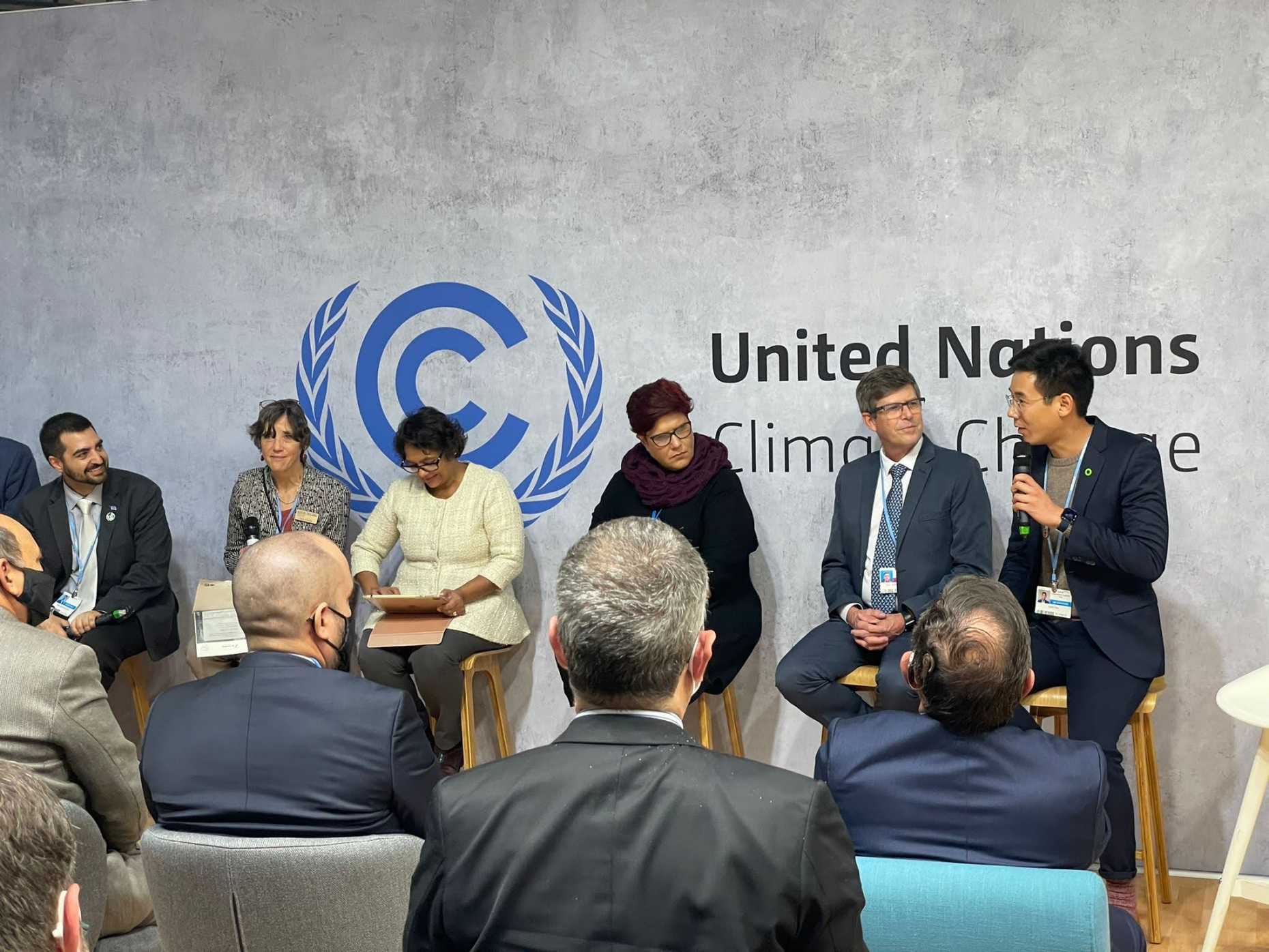
At ETH Zurich, together with a group of talented students, we investigate what pathway to impact artificial intelligence can take in order to tackle the climate crisis. At DS3Lab external page Climate + AI, we have created benchmarks to monitor and evaluate forest carbon stock predictions and started working together with local communities to develop mobile applications and reward systems for citizen science. Within the global machine learning community, I was a lead organiser of NeurIPS’ largest annual workshop external page “Tackling Climate Change with ML” and helped build external page Climate Change AI, a global initiative to catalyse impactful work at the intersection of climate change and machine learning. Climate Change AI now provides external page innovation grants of a total of USD 1.8m to support meaningful research where we require a clear pathway to impact as well as taking the ethical considerations of technology usage into account.
This year, at COP26, Climate Change AI aimed to bring back science and distinguish hype from actual research. Artificial intelligence is a powerful tool but not a silver bullet. Together with the external page German government and the external page United Nations, we organised several events to inform decision-makers about ways in which AI can accelerate climate action, and address how policymakers can facilitate impactful work.
Hype, celebrities and true heroes
Informing decision-makers is a crucial responsibility of being a young researcher, and this year, the hype and noise have been especially loud. Even though we are in a global pandemic, COP26 was the largest COP so far, with more than 50,000 accredited participants. Many billionaires used their influence and privilege to gain access in order to promote their businesses and themselves. Jeff Bezos infamously told delegates that when he was in space earlier this year he finally realised just how fragile nature and our planet were.
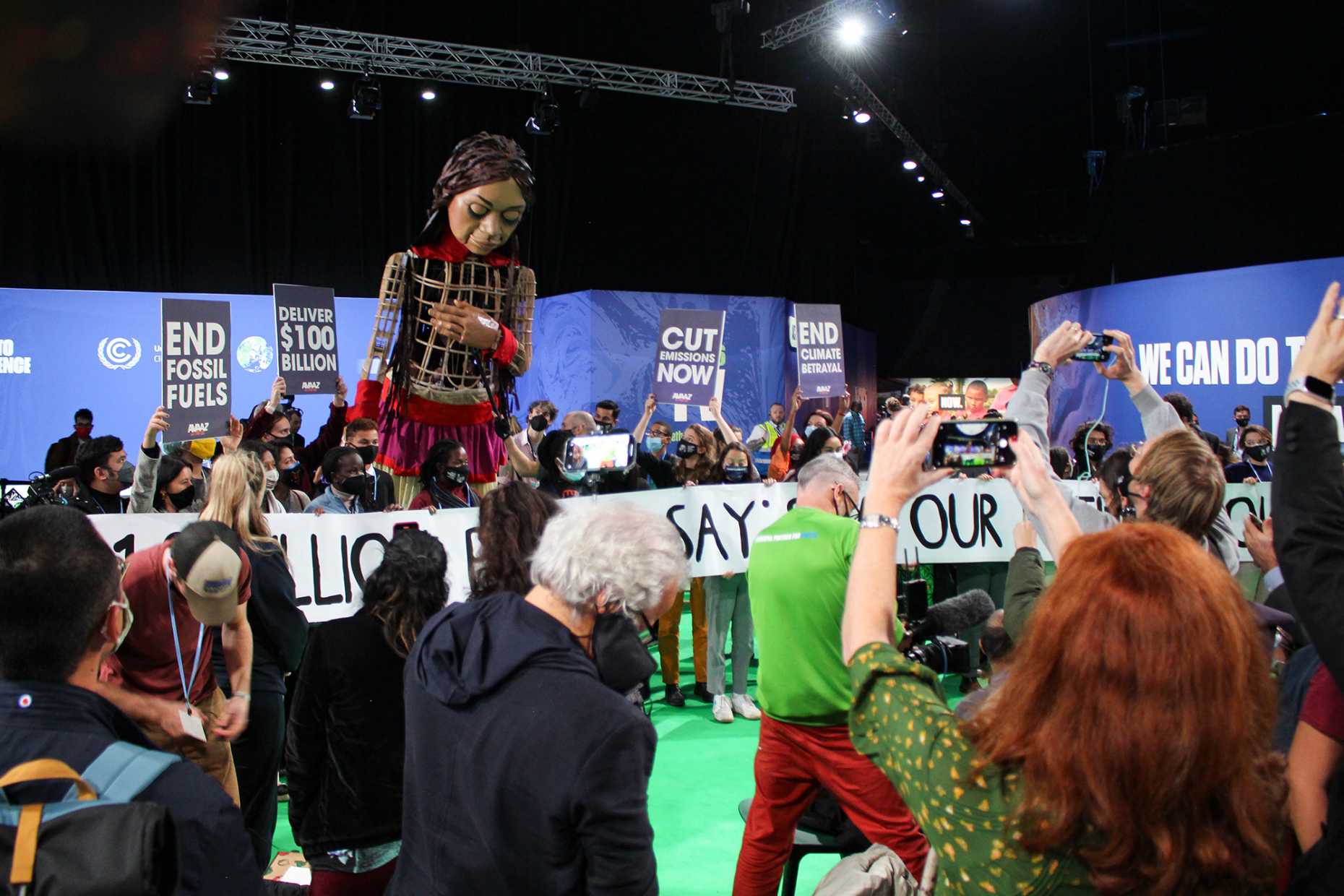
At the same time, COP26 was one of the most exclusive in history. Many representatives from marginalised communities were restricted from attending due to vaccination requirements and absurdly high accommodation prices (a bed in a dorm room in Glasgow could cost USD 30,000). It’s important to remember that the climate crisis is not just about extreme weather events but about people. The UNHCR estimates that more than 21 million people have been forced to leave their countries due to climate change since 2010. Art performances such as Little Amal, a giant puppet that travelled 8,000km to Glasgow in support of refugees, reminded COP delegates that frontline communities, who have contributed the least to global warming, are suffering most of its consequences.
“I want you to stay angry,” said former US President Barack Obama when he gave external page a speech at COP26, addressing the true heroes of our times: youth leadership. Fridays for Future protests consistently remind delegates, both outside and inside the conference halls, what we are fighting for. However, youth leadership understands that protests alone are not enough – and many young people are now leading from the forefront of climate action.
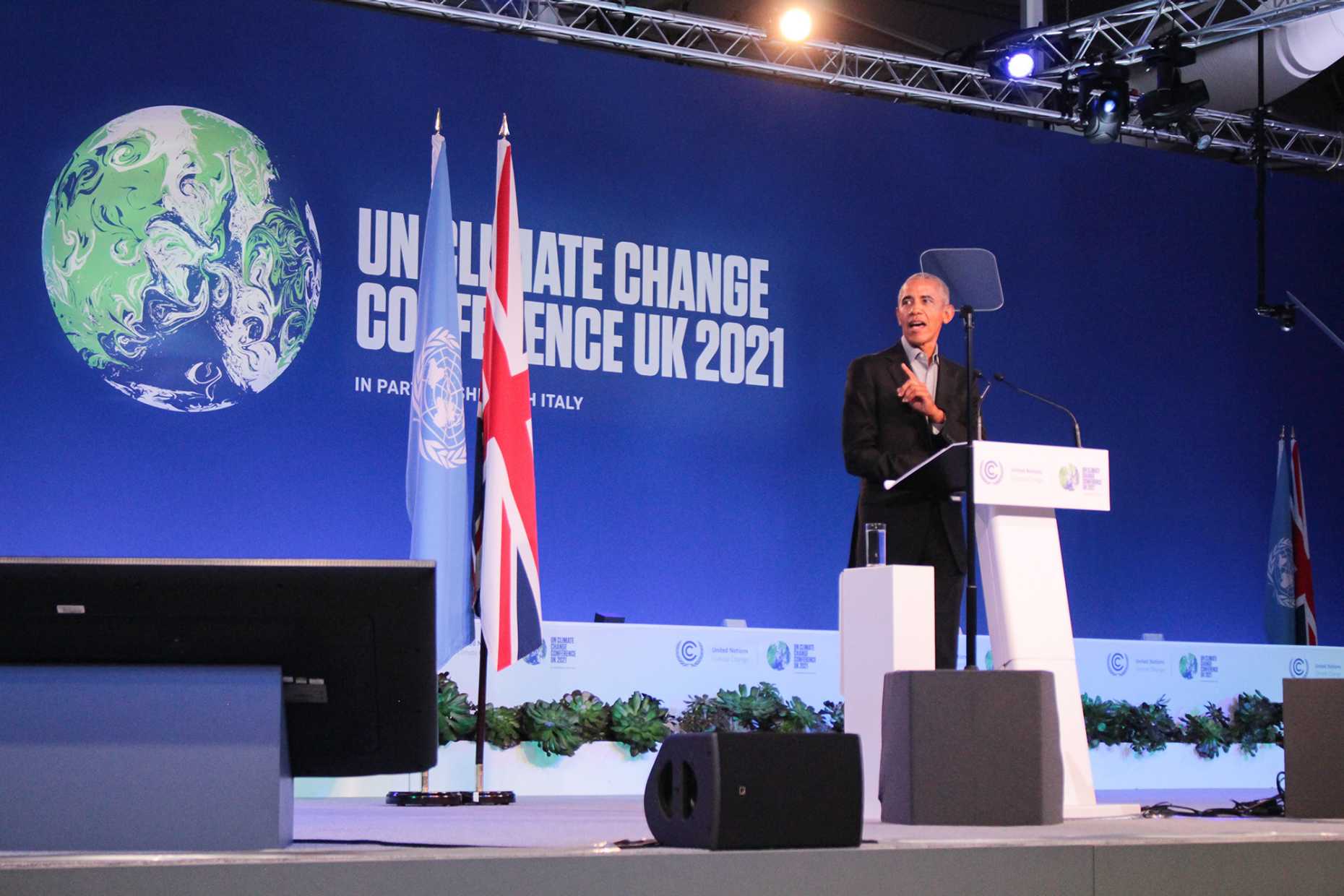
Young delegates entering COP as observers or negotiators (we jokingly call them “youth infiltrators”) often understand UN rules even better than senior negotiators. They are able to slowly shape important decisions that reflect the zeitgeist, making sure leaders are held accountable and local communities are not left behind. Observers such as Marie-Claire Graf from Switzerland, who served as a YOUNGO Focal Point and helped the largest youth delegation in history obtain authorisation to attend COP, or young delegates such as Yumna Yusuf from the UK, who helped organize COP26 and made sure that local communities and climate justice became an important topic at this year’s conference.
Youth leadership also plays a critical role in technology transfer. After years of negotiations, YOUNGO now has a seat on the advisory board of the Climate Technology Centre & Network (CTCN), the operational arm of the UNFCCC Technology Mechanism.
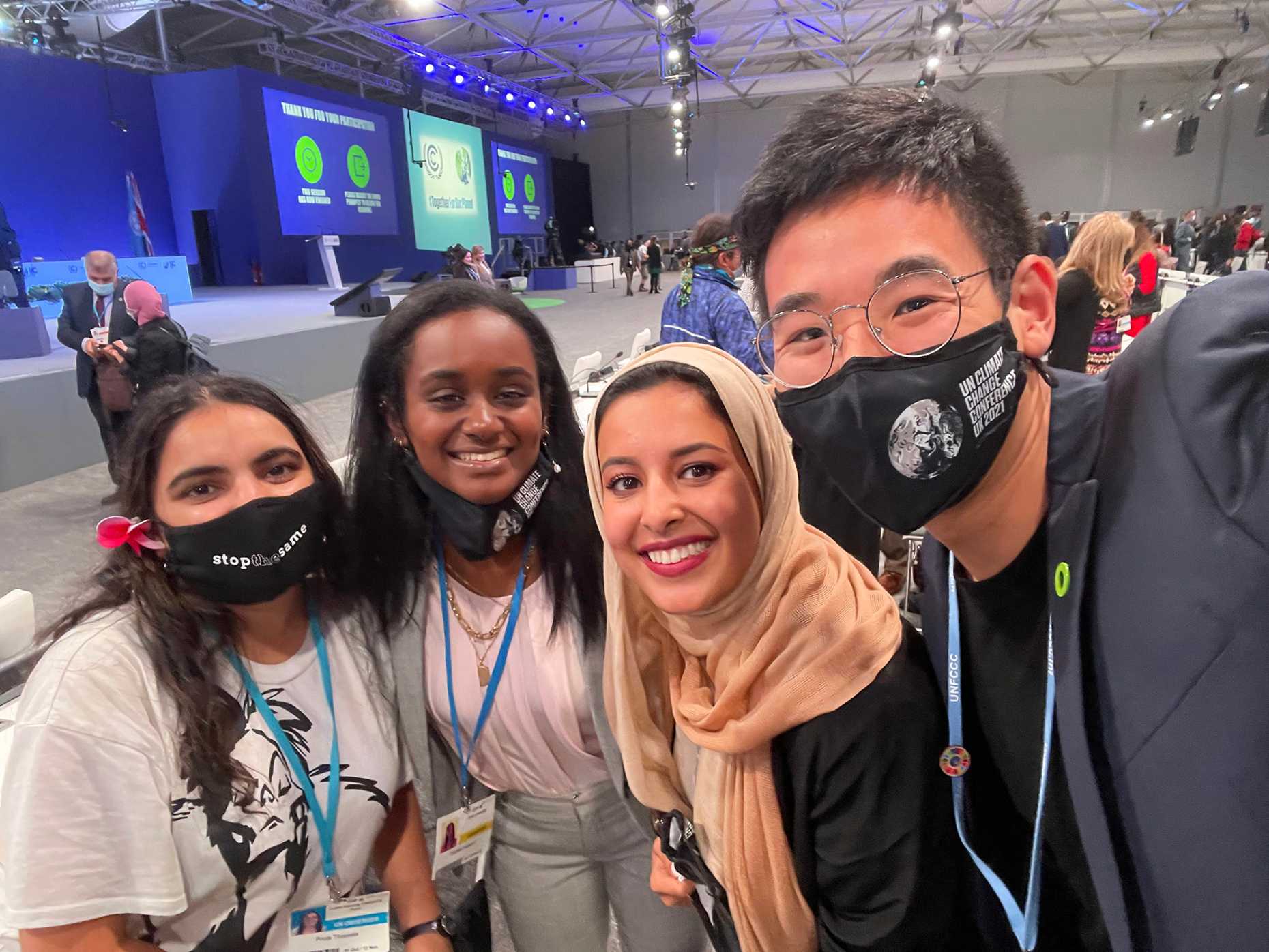
Moving forward
After two draining weeks, COP26 unfortunately failed to deliver on its ambition. Poor countries will not receive financial reparations for damages caused by climate change and the fossil fuel industry was able to influence the final text and weaken important passages. This calls for outrage, but also for optimism because the momentum for change is growing. Youth activism has never been stronger and, at the same time, young innovators in policy, science and business are realising that they don’t have to wait for another COP to act now.
ETH Zurich and its faculty, students and alumni are at the forefront of this change, incubating many globally respected initiatives such as external page Restor, external page Climeworks and external page Climate Change AI. So let’s get to work.